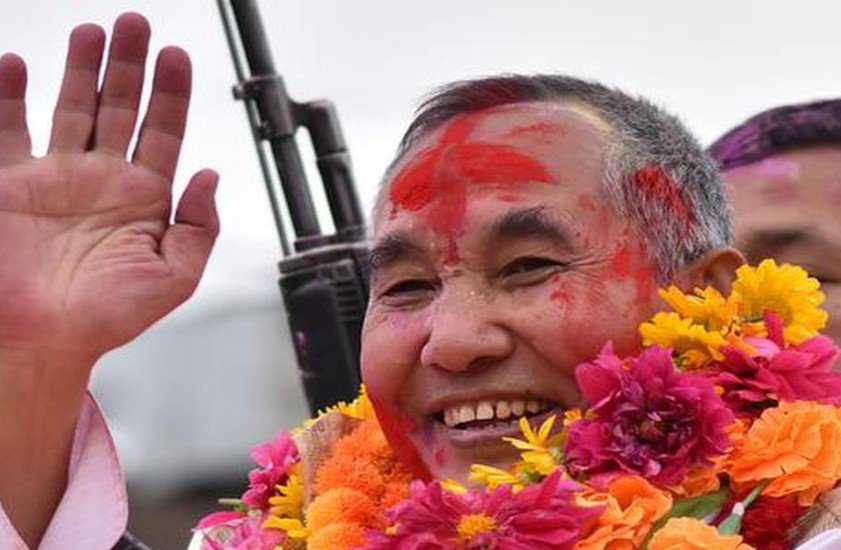After months of political turbulence and growing dissent within his own party, N Biren Singh stepped down as Manipur’s Chief Minister on Sunday. His exit wasn’t just about external pressure from Kuki-Zo groups or the opposition—it was the culmination of internal rebellion, strategic maneuvering, and a last-minute loss of confidence from BJP’s central leadership.
Pressure Mounts from All Sides
For nearly two years, Singh weathered calls for his resignation. The Kuki-Zo community, including 10 MLAs—seven from the BJP itself—had blamed him for the ethnic unrest that erupted in May 2023. However, Singh managed to hold on, largely due to support from the party’s central leadership.
Things started changing last year. BJP MLAs from the Meitei-majority Imphal Valley, who had once stood by him, began knocking on Delhi’s doors. Their visits to the Prime Minister’s Office and the party high command increased, signaling growing unrest.
The last straw? The upcoming Budget session of the Manipur Assembly. Dissident BJP MLAs, feeling unheard, planned to take a “drastic move”—possibly supporting a no-confidence motion against their own chief minister. That was a risk the BJP leadership could no longer ignore.

How the Internal Revolt Took Shape
By Sunday morning, the split within the BJP was no longer behind closed doors. Two camps had formed—Singh’s loyalists and the dissidents. And they weren’t even in the same place.
It all started with Speaker Thokchom Satyabrata Singh, one of the CM’s biggest critics, heading to Delhi last week. He met BJP president J P Nadda and, according to insiders, made it clear—he wouldn’t be able to stop a no-confidence motion if it came up. That was a signal that Singh’s hold on the Assembly was slipping.
Days later, another senior leader, Yumnam Khemchand Singh, landed in Delhi. His message to the BJP brass? If Biren Singh stayed, the government might not.
The BJP Leadership Steps In
The situation escalated quickly. On February 3, Manipur Governor A K Bhalla met Home Minister Amit Shah to discuss the crisis. The following day, Biren Singh flew to Delhi but reportedly failed to secure a meeting with Shah—a telling sign of his waning influence.
With no audience in Delhi, Singh and some of his ministers instead traveled to the Kumbh Mela in Prayagraj. But back home, the BJP leadership was making its move.
The Resignation Becomes Inevitable
- February 3: Manipur Minister Yumnam Khemchand Singh warns BJP top brass about the impending collapse if Singh stays.
- February 4: Governor Bhalla briefs Home Minister Amit Shah.
- February 5: Biren Singh fails to meet Shah in Delhi.
- February 10: Facing no way forward, Singh submits his resignation.
His exit marks the end of a long, tumultuous chapter in Manipur politics. But with tensions still simmering and leadership in flux, the next chapter may be just as uncertain.
